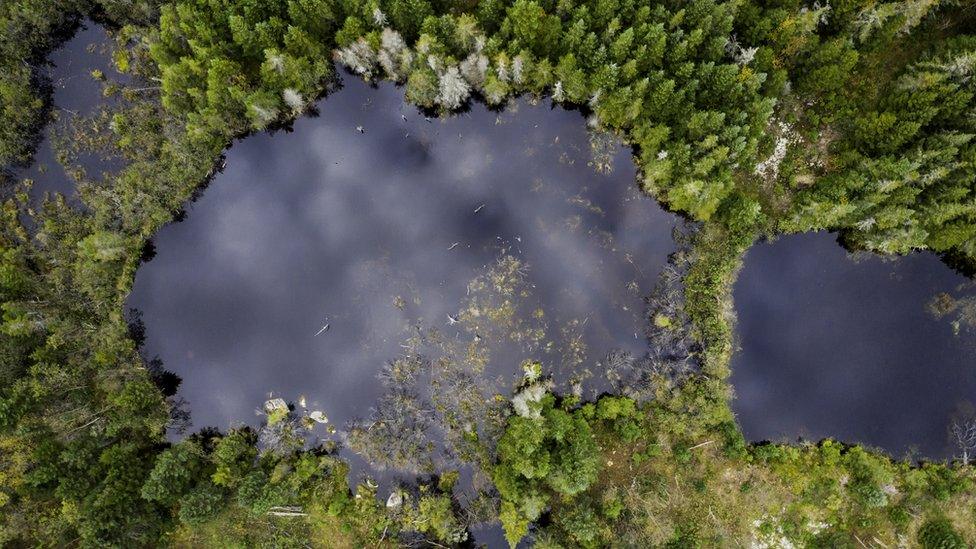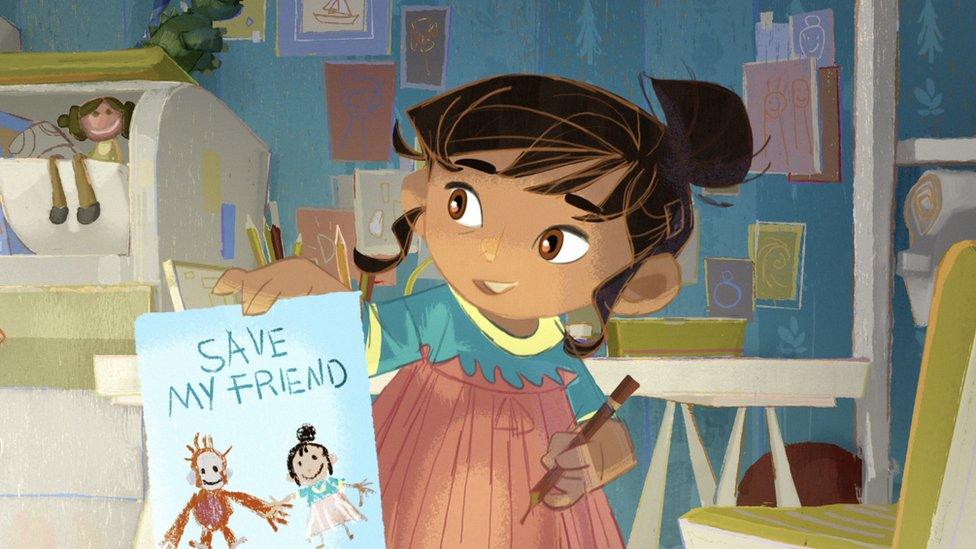Is thick loo roll ruining forests?
- Published
- comments

You might not know that a lot of toilet paper is made from wood pulp which comes from trees.
And if you think about how much loo roll must be used every day all over the world, you can imagine that it can have a big impact on our planet!
Now two environmental groups are warning about the popularity of thick toilet tissue, especially in the United States.
The Natural Resources Defense Council (NRDC) and Stand.earth say the average four-person household in the United States uses over 100lbs (which is about 45kg!) of toilet paper a year. That is more than the any other part of the world.
They're warning that this demand means the Boreal forest in Canada, just to the north of the USA, is under "severe threat" from industrial logging operations.

Canada's boreal forest covers 270 million hectares. One hectare is roughly the same size as a rugby pitch so it's huge!
The boreal region is one of three global forest types - it contains the world's most northern forests.
It's important for the planet because it stores carbon, purifies the air and water, and regulates the climate.
Logging is when trees are cut down and processed to make timber and pulp. These can then be used to produce things such as loo roll but also furniture, paper and other products.
The process can contribute to deforestation if it isn't managed properly, Deforestation is the name for when lots of trees are cut down.
This is why the NRDC and Stand.earth want companies which make thick toilet paper to choose more environmentally friendly ways of producing it.
Natural Resources Canada, which is part of the country's government and is responsible for its forests, says that Canada's deforestation rate is one of the lowest in the world and has been declining for 20 years.
It also says that "many harvesting practices in the boreal forest now imitate natural disturbances" and that harvesting trees doesn't cause deforestation.
- Published7 April 2018
- Published9 June 2017

- Published11 November 2018

